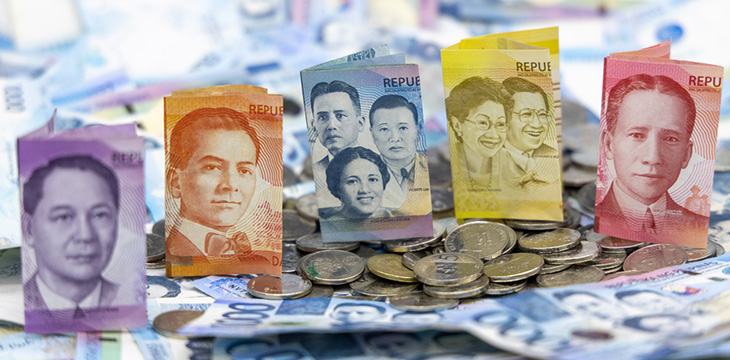|
Getting your Trinity Audio player ready...
|
The Philippines is transforming its financial landscape. A new report from digital payment giant Visa (NASDAQ: V) reveals that 75% of remittances to the country are now sent and received through digital platforms. This shift signals a broader trend toward digital adoption, driven by convenience, security and the increasing ubiquity of mobile technology.
Visa’s latest annual digital remittances adoption report provides a comprehensive overview of the changing dynamics in global remittance flows. Conducted from February to March 2024, the study surveyed nearly 45,000 remittance senders and receivers across 20 countries. Among its key findings was the significant rise in the use of digital methods for sending money, particularly in the Philippines.
The report found that three out of five of the top remittance-receiving countries in Asia-Pacific are from the region—India, China and the Philippines. In a Newsbytes PH article, Jeff Navarro, Visa’s Country Manager for the Philippines, said the country may still be transitioning from a cash economy to digital adoption, but 75% of all remittances were sent and received using digital solutions.
This trend reflects a growing trust in digital financial services among Filipinos. A significant 62% of surveyed Filipinos expressed that they felt more secure using digital platforms for money transfers, compared to just 15% who preferred traditional methods like in-person or mail transactions. The shift is primarily attributed to the improved internet infrastructure and widespread use of smartphones, making access to digital financial services easier and more convenient.
Speaking with CoinGeek, Dean Bernales, Country Manager for fintech company Elevate Pay, commented on the implications of this data: “The increased use of digital platforms for remittances indicates a growing comfort and trust in digital financial services.”
Bernales explained that Elevate Pay, a mobile-only platform, anticipates that this trend will continue to grow, further enhancing the convenience and accessibility of digital financial services.
Digital economy on the rise
The Visa report also underscores the Philippines’ ongoing transition from a cash-based economy to a digital one, a shift fueled by several key factors. Government initiatives promoting financial inclusion and digital payments, along with the introduction of digital banks, have played a crucial role in this transformation.
Bernales highlighted the importance of these developments: “Yes, there is a clear trend of Filipinos transitioning from a cash-based economy to a digital one. Technological advancements have provided a variety of digital payment solutions that are increasingly being adopted. The rise of freelancing and remote work has further accelerated this transition, as these workers require efficient digital payment systems.”
The COVID-19 pandemic also significantly contributed to this trend, pushing people towards safer, contactless payment methods. The collective impact of these factors is propelling the Philippines toward a more digitally integrated financial ecosystem.
The role of blockchain in the digital economy
While the adoption of digital payment solutions continues to grow, there is also interest in how emerging technologies like blockchain could further enhance this ecosystem. However, according to Bernales, blockchain’s role, while supportive, is not expected to be central to this growth.
“Blockchain technology can support the growth of the digital payment ecosystem in the Philippines, but it is not expected to be the primary driver. Fiat currency remains the most widely used form of money. However, blockchain can help lower transaction costs by eliminating intermediaries, making cross-border payments more affordable,” he explained.
While promising, blockchain technology is seen as a complementary tool rather than a replacement for the existing digital payment infrastructure, particularly in a country where fiat currency is still the dominant medium of exchange.
Optimistic outlook for digital payments
The future of digital payments in the Philippines appears bright. With the expanding freelance economy, continued OFW remittances and government support for digital infrastructure, the digital payment landscape is poised for growth in the future.
“We are very optimistic about the future of digital payments in the Philippines,” Bernales stated. “The country’s digital payment landscape is poised for significant growth, driven by the expanding freelance economy, OFW remittances, and government support for digital infrastructure and financial inclusion.”
“With 1.5 million Filipinos registered on international freelancing platforms, and a robust BPO sector, the demand for efficient digital payment solutions is substantial. The youthful, tech-savvy population is likely to adopt and innovate in digital financial services rapidly,” Bernales said. “Additionally, digital payments contribute to economic growth by improving transaction efficiency and facilitating global trade and commerce. All these factors combine to create a positive outlook for digital payment adoption in the Philippines.”
Navarro shared this sentiment, emphasizing the importance of innovation and investment in the digital payments space: Recently, Visa has launched its ‘Visa Direct’ platform, which connects to 8.5 billion endpoints across 190 countries, covering 160 currencies. This kind of infrastructure is crucial for handling the large volume of money movement in the country and ensuring that digital adoption continues to grow.
As the Philippines continues its digital transformation, the shift towards digital remittances and payments will likely accelerate, bringing greater financial inclusion, economic growth and integration into the global digital economy.
Watch: Fintech Revolution Summit sheds light on fintech’s impact on Filipinos

 02-16-2026
02-16-2026 




